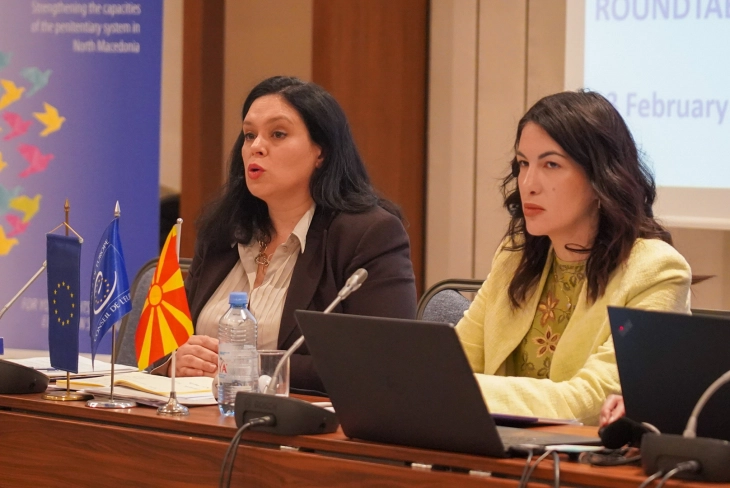Lifting statute of limitations on crimes of torture and ill-treatment in the performance of duties – part of the obligations for the country arising from ECHR judgements
- The lifting of the statute of limitations on the crimes of torture and ill-treatment in the performance of duties, as well as the revival of the civil aspect of the external control mechanism, are part of the obligations for the country in the coming period, as a result of the judgements of the European Court of Human Rights (ECHR).

Skopje, 13 February 2023 (MIA) – The lifting of the statute of limitations on the crimes of torture and ill-treatment in the performance of duties, as well as the revival of the civil aspect of the external control mechanism, are part of the obligations for the country in the coming period, as a result of the judgements of the European Court of Human Rights (ECHR).
The Committee of Ministers will hold a meeting over human rights in June 2023, which means that it expects to receive an updated action plan from the government’s agent by mid-March.
This was said at a roundtable discussion Monday concerning the execution of ECHR verdicts and the External Control Mechanisms, organized by the Ministry of Justice and a delegation from the Council of Europe’s Department for the Execution of Judgements of the ECHR.
The government agent of the Bureau for Representation of North Macedonia before the ECHR, Danica Dzonova, said that the Kitanovski group of eight ECHR judgements are still overseen by the Committee of Ministers and are in the execution phase, which means that the country is expected to undertake certain measures, such as conducting fresh investigations in the domain of individual measures, as well as general measures that have the task to prevent future similar violations of the European Convention on Human Rights.
Regarding the individual measures for the execution of judgements, in the cases Zheladinov, Suleimani and Trajkovski, as a state, Dzonova said, we have not managed to conduct a fresh investigation and the statute of limitations came into force.
“However, the Committee of Ministers is continuously monitoring us. What we have failed to do as a country during the execution of this set of judgements resulted in a request to lift the statute of limitations on the crime of torture,” stressed Dzonova.
Currently, the amendments of the Criminal code are before Parliament and, according to Dzonova, they include a proposal to lift the statute of limitations on the crime of torture, and with the new Criminal Code, she said an attempt will be made to also lift the statute of limitations on the crime of ill-treatment in the performance of duties.
“This is one of the remaining obligations in the process of executing these judgements, which are still being overseen by the Committee of Ministers,” said Dzonova.
As one of the more significant obligations ahead of the country, Dzonova pointed to the revival of the external control mechanism where as a country, she said, we have a serious problem with the revival of the civil aspect of the mechanism.
“The question arises whether and when the term of the non-governmental organizations would be extended so that it could be three years instead of one. There are several aspects, which suggest that this solution might not be the most appropriate one, and is likely not a sustainable solution,” said Dzonova.
Bojana Nikolin, the Chief of Section at the Department for the Execution of ECHR Judgements, noted that the eight cases from the Kitanovski group actually make up 30 percent of all of the country’s cases at the ECHR.
“The Committee of Minister will consider these cases for the first time at the human rights meeting in June this year. Which means that the Committee expects to receive an updated action plan from the government agent by mid-March. That is why it is important for a part of the open issues to be solved,” said Nikolin.
In response to the violations, Nikolin said that the country is obliged under international law to take measures, firstly, in order to make sure the applicant returns to the state before the violation, and secondly, to take general measures in order to avoid such violations in the future.
The event was held within the project “Enhancing the Capacities of the Penitentiary System in North Macedonia”, part of the joint program of the EU and the Council of Europe – Horizontal Facility for the Western Balkans and Turkey – Phase III. ad/sk/







